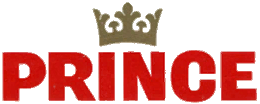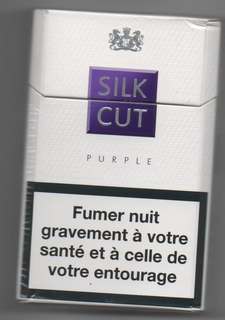 | |
 | |
| Product type | Cigarette |
|---|---|
| Owner | Philip Morris International |
| Produced by | Philip Morris International |
| Markets | See Markets |
Ashford is a brand of cigarettes, currently owned and manufactured by Philip Morris International.
 | |
 | |
| Product type | Cigarette |
|---|---|
| Owner | Philip Morris International |
| Produced by | Philip Morris International |
| Markets | See Markets |
Ashford is a brand of cigarettes, currently owned and manufactured by Philip Morris International.
In May 2010, a Christchurch company selling cheap high-nicotine cigarettes faced a grilling before a government selected committee on smoking.
Maori MP Hone Harawira said he would be asking the NZ Tobacco Group to appear before a Maori Affairs select committee hearing on the tobacco industry in Christchurch in about six weeks.
The business, based in Papanui offices, distributes two cigarette brands, Ashford and Easy, said to be big sellers in low socio-economic areas. The Press found 20-cigarette Easy packs being sold in Christchurch stores for as little as $7.70, and about $9 for the Ashford brand.
All convenience stores contacted by The Press stocked at least one of the brands.
Figures show the nicotine content of Ashford Full Flavour is 1.25 milligrams compared with 0.9mg for Benson & Hedges Classic and 0.8mg for Dunhill Premier. [1]
Ashford is sold in the following countries: Canada, Tunisia, Iran, Taiwan, Australia and New Zealand. [2] [3] [4]

Snus is a moist powder smokeless tobacco product originating from a variant of dry snuff in early 18th-century Sweden. It is placed inside the lip for extended periods, as in sublabial administration. Snus is not fermented. Although used similarly to American dipping tobacco, snus does not typically result in the need for spitting and, unlike naswar, snus is steam-pasteurized.

Kretek are unfiltered cigarettes of Indonesian origin, made with a blend of tobacco, cloves, and other flavors. The word "kretek" itself is an onomatopoetic term for the crackling sound of burning cloves.

Prince is a Danish brand of cigarettes, owned by multinational British American Tobacco, and produced by House of Prince, which until 2008 was a subsidiary of the Scandinavian Tobacco Company.
Nicotine gum is a type of chewing gum that delivers nicotine to the body. It is used as an aid in nicotine replacement therapy (NRT), a process for smoking cessation and quitting smokeless tobacco. The nicotine is delivered to the bloodstream via absorption by the tissues of the mouth.
Nicorette is the brand name of a number of products for nicotine replacement therapy (NRT) that contain nicotine. Developed in the late 1970s in Sweden by AB Leo in the form of a chewing gum, Nicorette was the first nicotine replacement product on the market.

Silk Cut is a British brand of cigarettes, currently owned and manufactured by Gallaher Group, a division of Japan Tobacco. The packaging is characterised by a distinctive stark white packet with the brand name in a purple, blue, red, silver, white or green square.

Nicotine marketing is the marketing of nicotine-containing products or use. Traditionally, the tobacco industry markets cigarette smoking, but it is increasingly marketing other products, such as electronic cigarettes and heated tobacco products. Products are marketed through social media, stealth marketing, mass media, and sponsorship. Expenditures on nicotine marketing are in the tens of billions a year; in the US alone, spending was over US$1 million per hour in 2016; in 2003, per-capita marketing spending was $290 per adult smoker, or $45 per inhabitant. Nicotine marketing is increasingly regulated; some forms of nicotine advertising are banned in many countries. The World Health Organization recommends a complete tobacco advertising ban.

Herbal cigarettes are cigarettes that usually do not contain any tobacco or nicotine, instead being composed of a mixture of various herbs and/or other plant material. However, Chinese herbal cigarettes contain tobacco and nicotine with herbs added, unlike European and North American herbal cigarettes which have tobacco and nicotine omitted. Like herbal smokeless tobacco, they are often used as a substitute for standard tobacco products. Herbal cigarettes are considered a "non-smoking aid." European countries advertise herbal cigarettes as a cessation smoking aid. Herbal cigarettes are also used in acting scenes by performers who are non-smokers, or—as is becoming increasingly common—where anti-smoking legislation prohibits the use of tobacco in public spaces. Herbal cigarettes can carry carcinogens which can have health implications.
Capstan is a British brand of unfiltered cigarettes, currently owned and manufactured by Imperial Brands. The brand dwindled in popularity when the health effects of tobacco became more widely known; few shops sell them today.
Barclay was an American brand of cigarettes manufactured by R. J. Reynolds Tobacco Company in the U.S. and by British American Tobacco outside of the U.S.

f6 is a German cigarette brand owned by Philip Morris International and produced by the f6 Cigarettenfabrik Dresden GmbH.
King's is a Danish brand of cigarettes owned by conglomerate British American Tobacco, and produced by House of Prince.

Smoking in Iceland is banned in restaurants, cafés, bars and night clubs as of June 2007. A large majority of Icelanders approve of the ban. At the time the ban went into effect, almost one in four Icelandic people were smokers.
Regulation of electronic cigarettes varies across countries and states, ranging from no regulation to banning them entirely. For instance, e-cigarettes were illegal in Japan, which forced the market to use heat-not-burn tobacco products for cigarette alternatives. Others have introduced strict restrictions and some have licensed devices as medicines such as in the UK. However, as of February 2018, there is no e-cigarette device that has been given a medical license that is commercially sold or available by prescription in the UK. As of 2015, around two thirds of major nations have regulated e-cigarettes in some way. Because of the potential relationship with tobacco laws and medical drug policies, e-cigarette legislation is being debated in many countries. The companies that make e-cigarettes have been pushing for laws that support their interests. In 2016 the US Department of Transportation banned the use of e-cigarettes on commercial flights. This regulation applies to all flights to and from the US. In 2018, the Royal College of Physicians asked that a balance is found in regulations over e-cigarettes that ensure product safety while encouraging smokers to use them instead of tobacco, as well as keep an eye on any effects contrary to the control agencies for tobacco. A recent study shows electronic device company "JUUL" contains carcinogens and other harmful ingredients inside their e-juice cartridges.

Juul Labs, Inc. is an American electronic cigarette company which spun off from Pax Labs in 2017. It makes the Juul electronic cigarette, which atomizes nicotine salts from leaf tobacco supplied by one-time use cartridges.
A heated tobacco product (HTP) is a tobacco product that heats the tobacco at a lower temperature than conventional cigarettes. These products contain nicotine, which is a highly addictive chemical. The heat generates an aerosol or smoke to be inhaled from the tobacco, which contains nicotine and other chemicals. HTPs may also contain additives not found in tobacco, including flavoring chemicals. HTPs generally heat tobacco to temperatures under 600 °C (1100 °F), a lower temperature than conventional cigarettes. HTPs use embedded or external heat sources, heated sealed chambers, or product-specific customized cigarettes. Whereas e-cigarettes are electronic devices that vaporize a liquid containing nicotine, HTPs usually use tobacco in leaf or some other solid form, although there are some hybrid products that can use both solid tobacco and e-liquids. There are various types of HTPs. The two most common designs are those that use an electric battery to heat tobacco leaf and those that use a carbon ember that is lit and then heats the tobacco. There are similar devices that heat cannabis instead of tobacco.

Peter Stuyvesant is a brand of cigarettes currently owned by British American Tobacco and manufactured by the American Cigarette Company. In Australia and New Zealand, the brand is manufactured by Imperial Tobacco. The cigarette brand is named after Petrus Stuyvesant, Governor of New Amsterdam, later New York City.

Lexington is a Luxembourgish brand of cigarettes, currently owned and manufactured by Landewyck Tobacco. In South Africa, it is sold by BAT South Africa, a subsidiary of British American Tobacco.

Alfa was an Italian brand of cigarettes, owned by multinational British American Tobacco. The brand was manufactured by its local subsidiary, BAT Italia, until it was discontinued in 2014. In Japan, Alfa is still being manufactured by Japan Tobacco.

Nicotine pouches are white pre-portioned pouches containing either tobacco derived nicotine or synthetic nicotine, but no tobacco leaf, dust, or stem, and are described as either similar to or a tobacco-free version of snus. But the difference between snus and nicotine pouches is about more than the simple presence or lack thereof of tobacco – nicotine pouches are also more long lasting and have a longer shelf-life than traditional snus. No combustion is involved. The user puts a pouch between the upper lip and gum, and leaves it there while the nicotine and taste is being released. When finished, the pouch is disposed of in household trash. Many brands have a storage area in the top case where used pouches can be kept if no trash can is readily available. The small pouches are not like chewing tobacco, as the user does not need to spit, since the contents of the pouches stay inside the pouches during use.